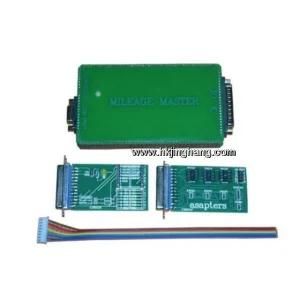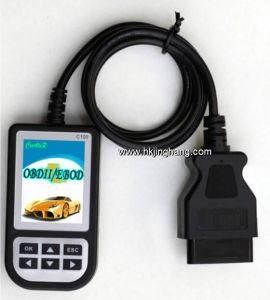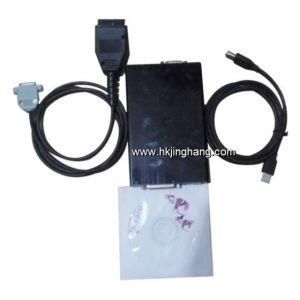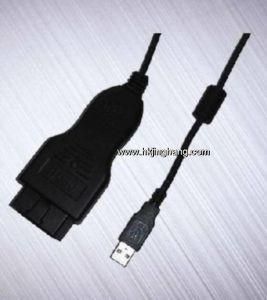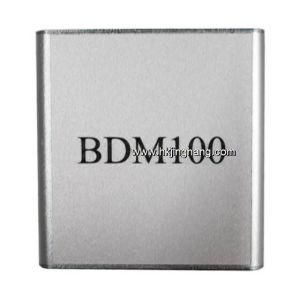Magnetic Motor Rotor Manufacture in China
Fujian Renhao Plastic Technology Co., Ltd. / 2022-06-27
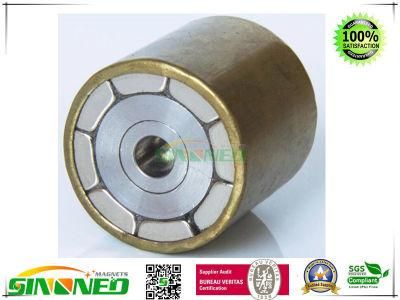
- Shaft Hole:10-32
- Torque:3~80nm
=== Base Info ===
- Bore Diameter:19mm
- Speed:10000r,M
- Structure:Rigid
- Material:Stainless Steel
- Type:Universal Coupling
- Transport Package:Cartons
- Specification:As customer′s request
- Origin:China
- HS Code:8505111000
- Production Capacity:5000,Month
- Package size per unit product:35.00cm * 26.00cm * 16.00cm
- Gross weight per unit product:20.000kg
=== Description ===
Basic Info.
Bore Diameter 19mm Speed 10000r/M Structure Rigid Material Stainless Steel Type Universal Coupling Transport Package Cartons Specification As customer′s request Origin China HS Code 8505111000 Production Capacity 5000/MonthPackaging & Delivery
Package size per unit product 35.00cm * 26.00cm * 16.00cm Gross weight per unit product 20.000kgProduct Description
Permanent Magnetic coupling is a coupling that transfers torque from one shaft but using a magnetic field rather than a physical-mechanical connection.
While all magnetic couplings use the same magnetic properties and basic mechanical forces, there are two types that differ by design.
The two main types include:
- Disc-type couplings featuring two face-to-face disc halves embedded with a series of magnets where torque is transferred across the gap from one disc to the other
- Synchronous-type couplings such as permanent magnet couplings, coaxial couplings and rotor couplings where an internal rotor is nested inside of an external rotor and permanent magnets transfer torque from one rotor to the other
In addition to the two main types, magnetic couplings include spherical, eccentric, spiral, and nonlinear designs. These magnetic coupling alternatives aid in the use of torque and vibration, specifically used in applications for biology, chemistry, quantum mechanics, and hydraulics.
In the simplest terms, magnetic couplings work using the fundamental concept that opposite magnetic poles attract. The attraction of the magnets transmits torque from one magnetized hub to another (from the driving member of the coupling to the driven member). Torque describes the force that rotates an object. As external angular momentum is applied to one magnetic hub, it drives the other by transmitting torque magnetically between the spaces or through a non-magnetic containment barrier such as a dividing wall.
The amount of torque generated by this process is determined by variables such as:
- Working temperature
- The environment in which processing occurs
- Magnetic polarization
- Number of pole pairs
- Dimensions of pole pairs, including gap, diameter, and height
- Relative angular offset of the pairs
- The shift of the pairs
Depending on the alignment of the magnets and discs or rotors, the magnetic polarization is radial, tangential, or axial. Torque is then transferred to one or more moving parts.
Magnetic couplings are most often used for liquid pumps and propeller systems since a static, physical barrier can be placed between the two shafts to separate the fluid from the motor operating in air. Magnetic couplings preclude the use of shaft seals, which eventually wear out and fail from the sliding of two surfaces against each other. Magnetic couplings are also used for ease of maintenance on systems that typically require precision alignment when physical shaft couplings are used since they allow a greater off-axis error between the motor and driveshaft.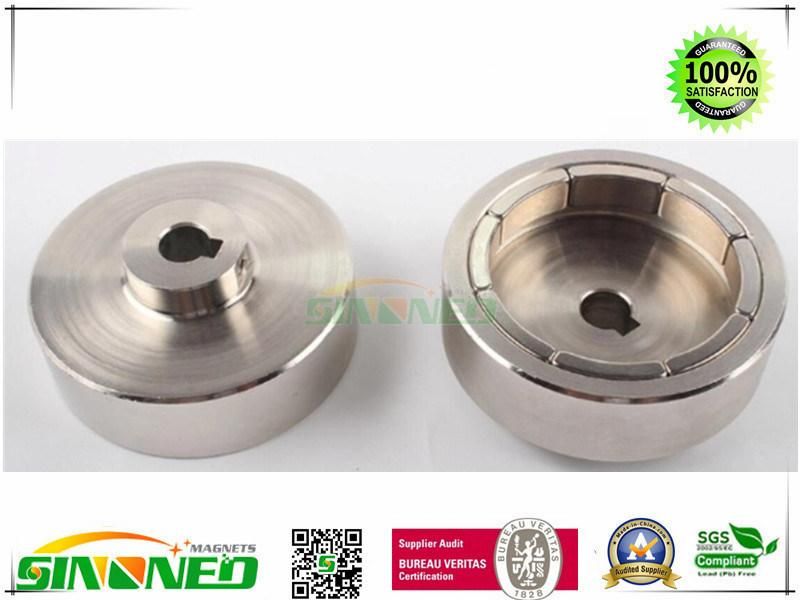
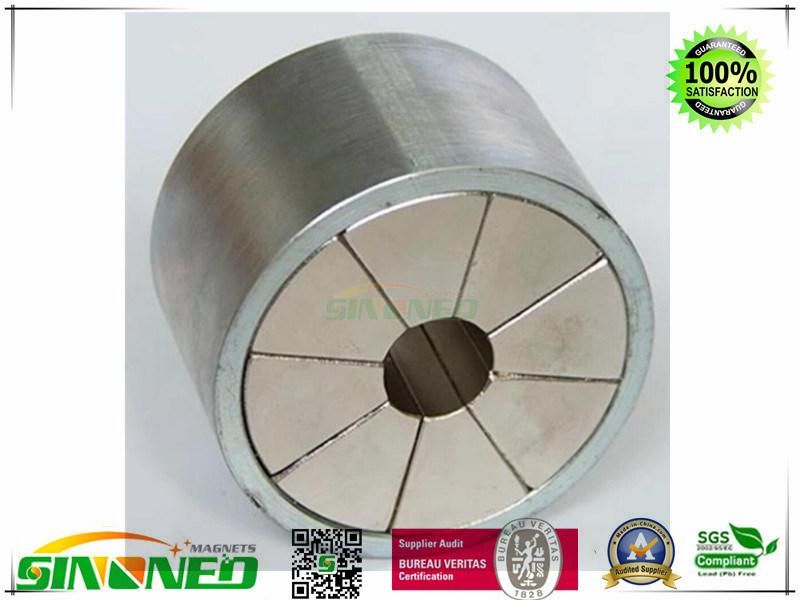
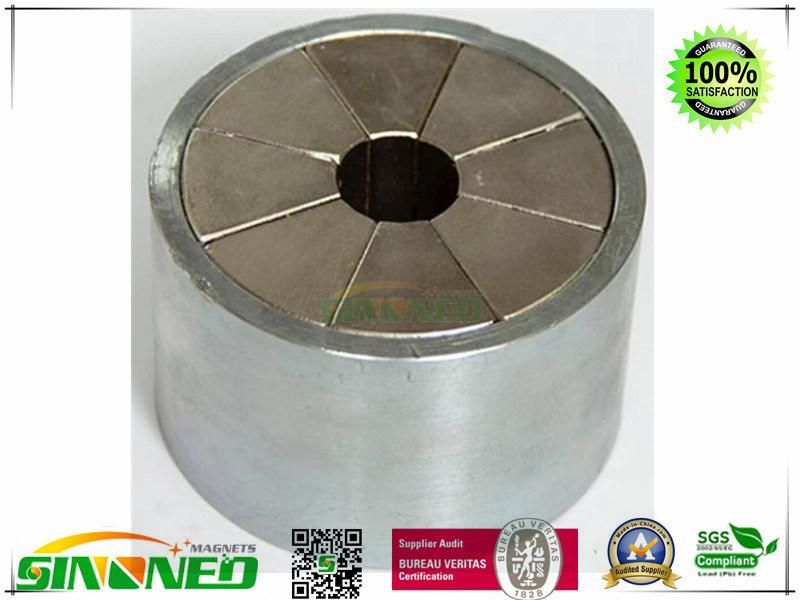
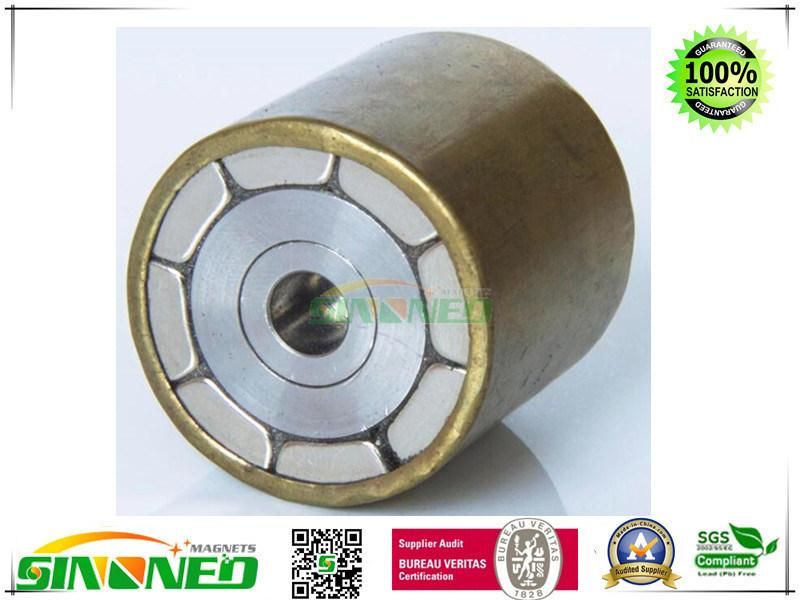
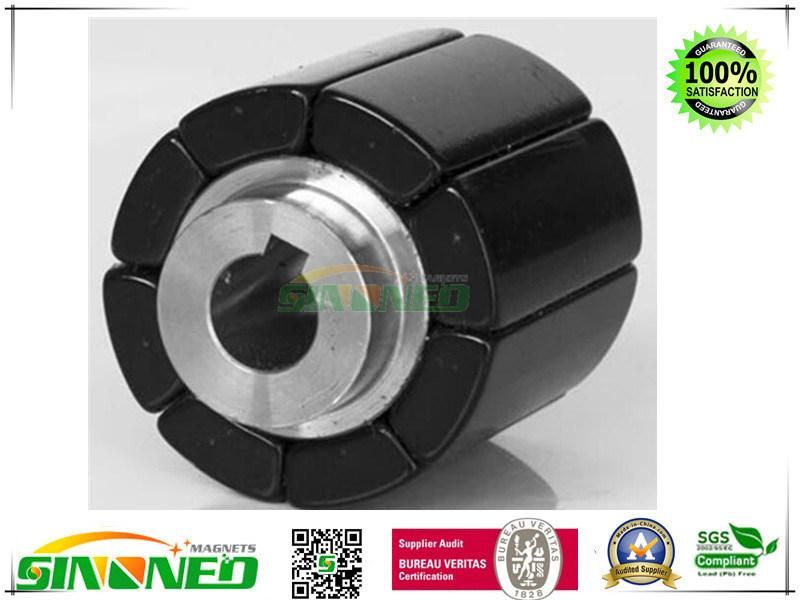
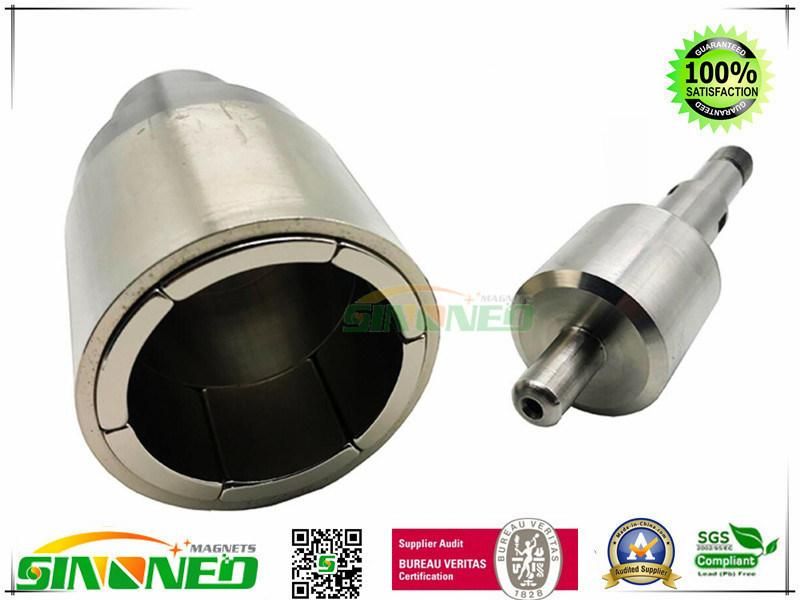
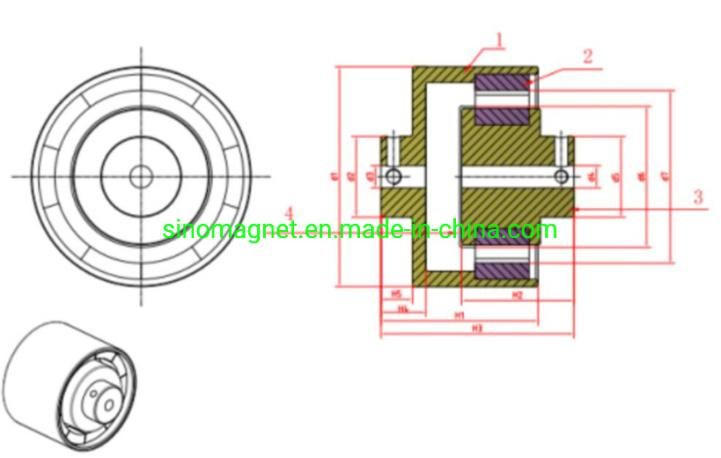
Item | Description |
1 | Outer Rotor |
2 | Magnet |
3 | Inner Rotor |
4 | Spacer Sleeve |
1. Materials
Magnet: Neodymium Magnet
Sleeve: Austenite stainless steel, such as SS304, SS316.
Main part: 20# steel, martensitic stainless steel
2. Advantages
Magnetic coupling for standard applications
Hermetically sealed
No contact of torque transmitting elements
No maintenance necessary
High efficient can optional
3. Recommended applications
-Chemical industry
-Oil and gas industry
-Refining technology
-Pharmaceutical industry
-Centrifugal pumps
-Top drive mixers/agitators
4. How does magnetic coupling work?
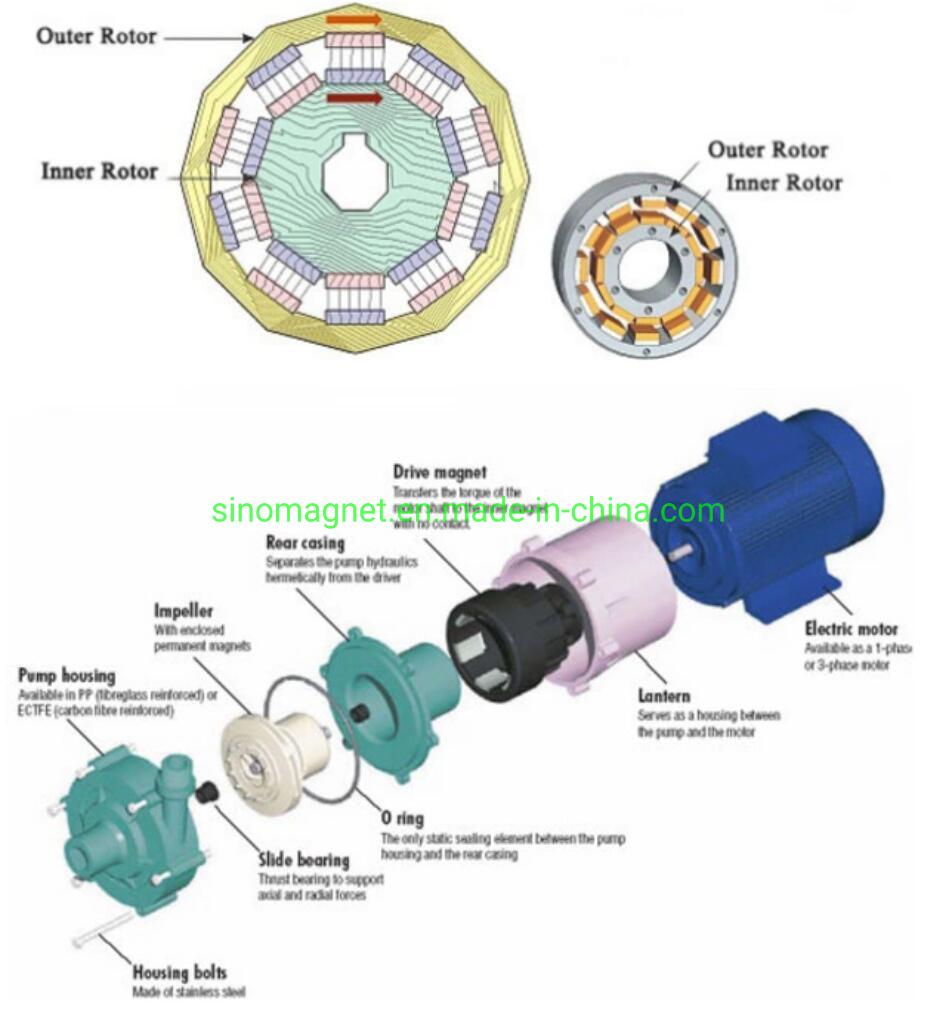
New product
Hot product
- Gm Candi Interface
2022-06-23
- Scan Dash V2.0 for BMW
2022-06-23
- K+Can Commander 2.0
2022-06-23
- Mut-3 Professional Diagnostic Tool Mut3
2022-06-23
- CKM-100 Key Programmer for Benz/BMW
2022-06-23
- Fuel Injector Tester & Cleaner (MST-N6A)
2022-06-23
- Mst 9000+ Plus ECU Simulator
2022-06-23
- OBD Ii Code Reader Mst-300, OBD2 Code Scanner
2022-06-23
- Digital Battery Analyzer (SC-100)
2022-06-23
- VAS5052A PC VERSION with VAS5054A Wireless Bluetooth Communicate
2022-06-23

